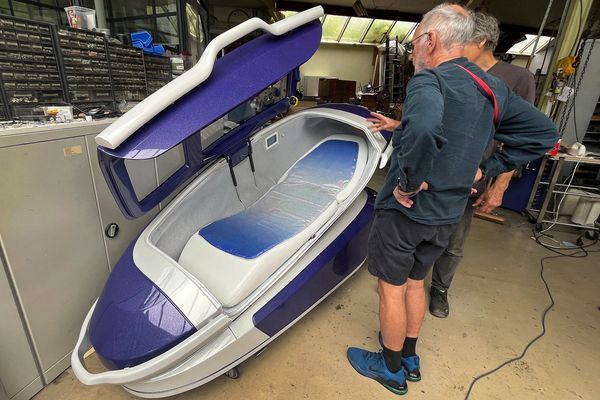
You can’t run away from your problems, so the old adage goes. Yet in March last year, boarding a one-way flight from London to Bogotá, I gave it my best shot. I had just turned 30 and was feeling the societal pressure to settle down, like my coupled-up friends whose lives seemed to be bifurcating away from mine, and to progress in my career. But I wasn’t ready.
Two years earlier, I had left my office job to became a freelance writer, moved into a one-bed flat and split up with my long-term partner. Any one of these things might have been cause for celebration – each was a positive step for me – but the unexpected successive Covid lockdowns that followed rendered my new lifestyle lonely and stagnant, rather than exciting and opportunity-filled. And so, after the lost years of the pandemic, and with no dependants, I wanted to embrace the freedom I had failed to make the most of.
Inspired by social media influencers who were running businesses from beaches in Bali, I rented out my flat and started working from abroad, picking up travel writing commissions to supplement my income. My “offices” included a shoebox-sized Airbnb in central Berlin; a coworking space in Barcelona; a friend’s apartment in Brooklyn; and a spotless train carriage in Geneva. Over the course of a year, I worked from 10 different countries across four continents, pursuing that 21st-century professional fantasy of working from the beach, picking my hours and surfing at lunchtime.

Digital nomadism is a growing phenomenon. Over the past two years, there has been a surge in searches for digital nomad visas, a residency permit that allows you to live and work somewhere for an extended period. Countries offering these visas include Portugal, Colombia, Cyprus, Brazil and Spain, with Italy soon expected to join (a policy was approved by Italian lawmakers in March 2022). The stats don’t surprise me: I have friends who have switched jobs to enable more remote working (one conducted video calls in front of a generic beige wall while secretly spending their working week in Athens).
Lockdown showed us how easy it is to work a few days a week from home, so it makes sense that more of us are curious to experiment with taking that approach abroad. Yet, months into my new lifestyle, cracks started to show. For a start, I was exhausted. I had hated working from home during the Covid lockdowns – it felt like living at work – and now work was joining me on holiday too. I would be sitting outside a hostel in Florence doing a 9-to-5 writing shift for a Nottingham-based health and beauty retailer, cooling my overheating laptop in the shade while looking enviously at holidaymakers relaxing by the pool. Midway through a group dinner with new friends in Abu Dhabi, I had to rush out to interview an A-list actor on Zoom from a late-night cafe at a time-difference-appropriate hour.
In retrospect, I could have been better organised. I’ve since learned the importance of allocating yourself proper rest periods while working as a freelance. But, panicking about the costs of travelling, I overcompensated. Although I squeezed in morning gallery visits and lunchtime walking tours, a full day off work was a rarity. Departure lounges became my office space (if you’re in the market, Valencia is a stellar work-from-airport option). My only travel essential? A fully charged laptop.
I found constantly travelling to be disorientating. I lived out of a suitcase full of creased T-shirts; struggled with language barriers; and craved home comforts like Twinings Earl Grey from my favourite mug. I was chronically firefighting unglamorous concerns such as missing luggage, or sleep deprivation after an overnight flight delay.
Combining the job I adore with a favourite pastime – travel – was a smart move on paper, and it created excellent Instagram material (the flight delays did not feature). In reality, I was able to access neither the tranquillity and sense of routine I need to do my best writing, nor the relaxed holiday mindset to enjoy the luxury of being abroad.
The promise of “having it all” by hopping from one country to the next has, at least for me, proved too good to be true. Now, I view those laptop-on-the-beach snaps with knowing scepticism, and I’ve become much more disciplined about separating holiday time from work time. Coming home has allowed me to truly focus on the work that inspires me, rather than accepting jobs just to fund my next flight. I’m lucky to have a career I love; I’m no longer interested in trying to do it from a sunbed.
Running away from life back home was fun for a while – I certainly don’t regret it. But if I’m honest with myself, it was escapism rather than simply a love of travel that motivated my digital nomadism. After a while, that lifestyle was no longer worth the hidden costs. I finally understand, as the Swedes say, that: “Away is good but home is best.”
Francesca Specter is a freelance writer and author of Alonement: How to Be Alone and Absolutely Own It
Do you have an opinion on the issues raised in this article? If you would like to submit a response of up to 300 words by email to be considered for publication in our letters section, please click here.







